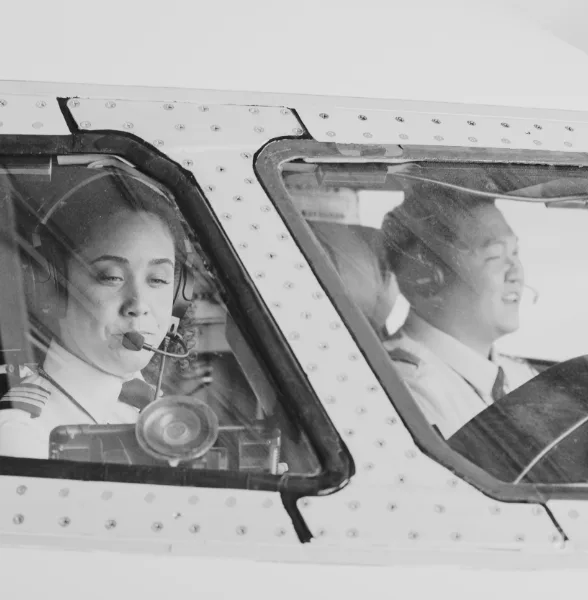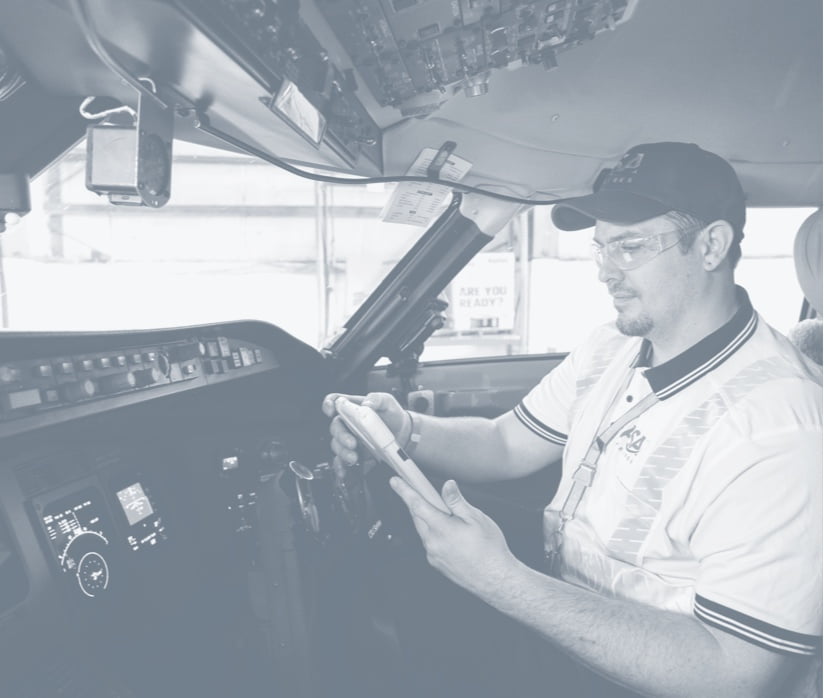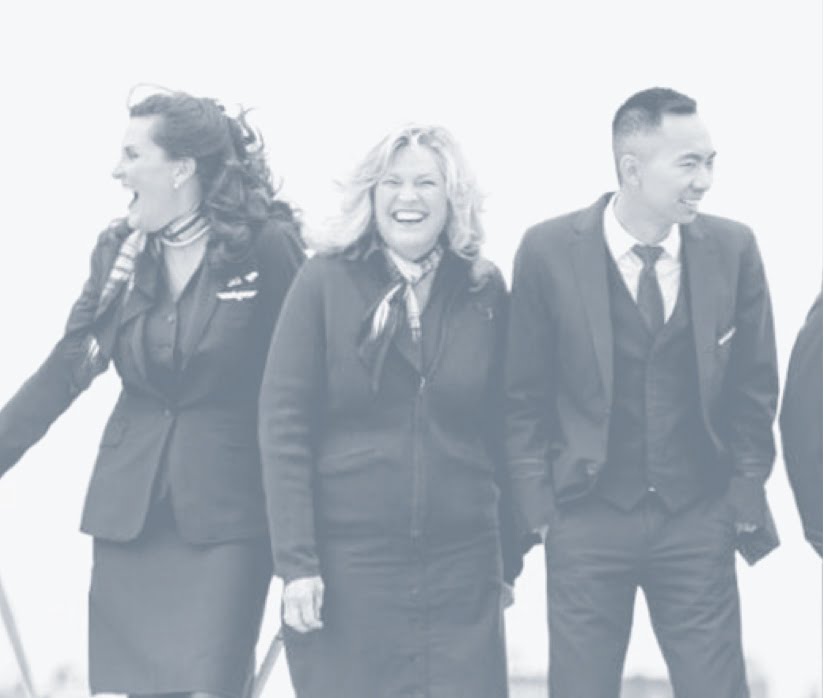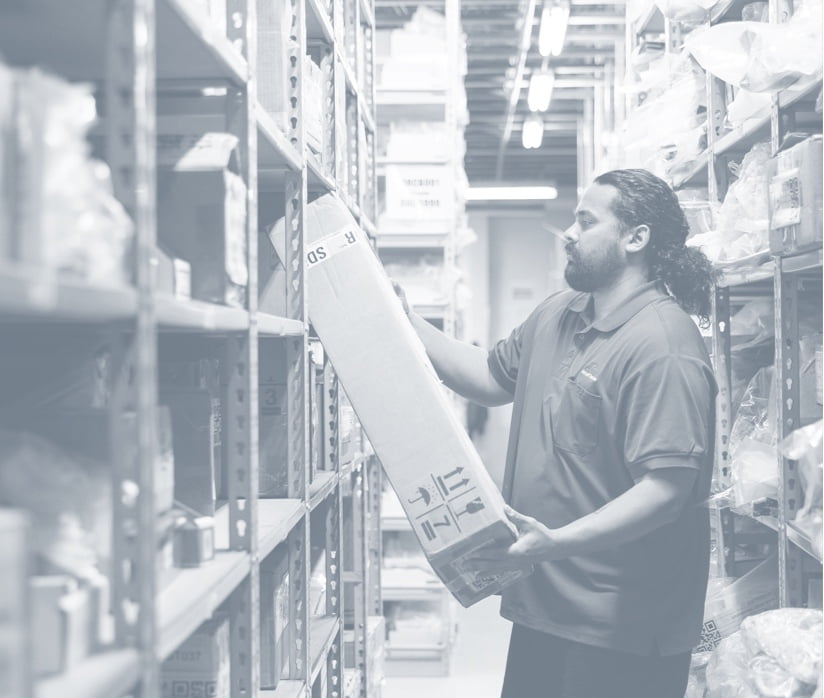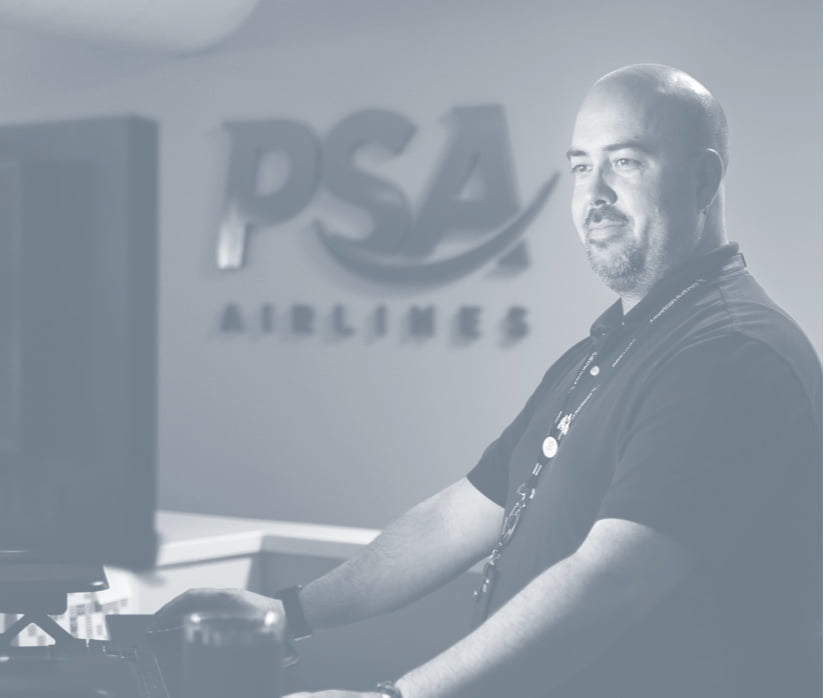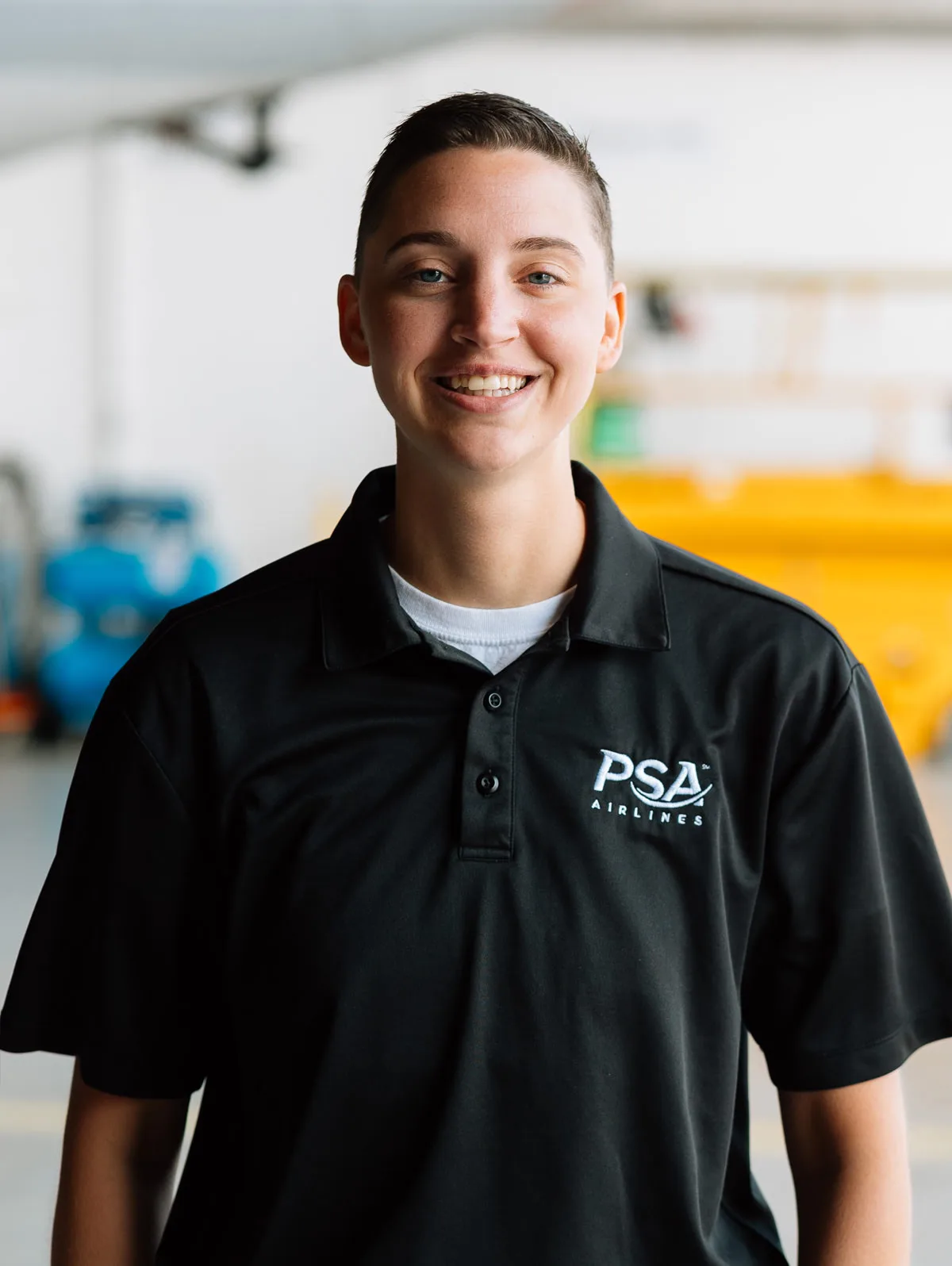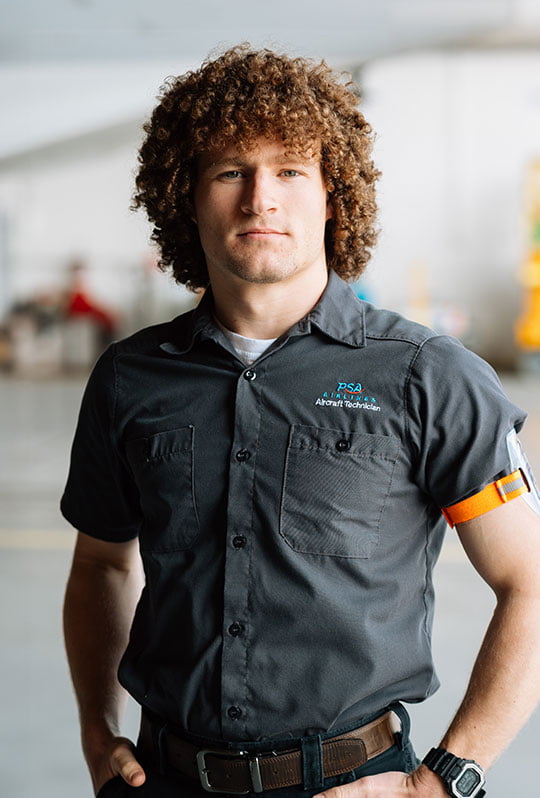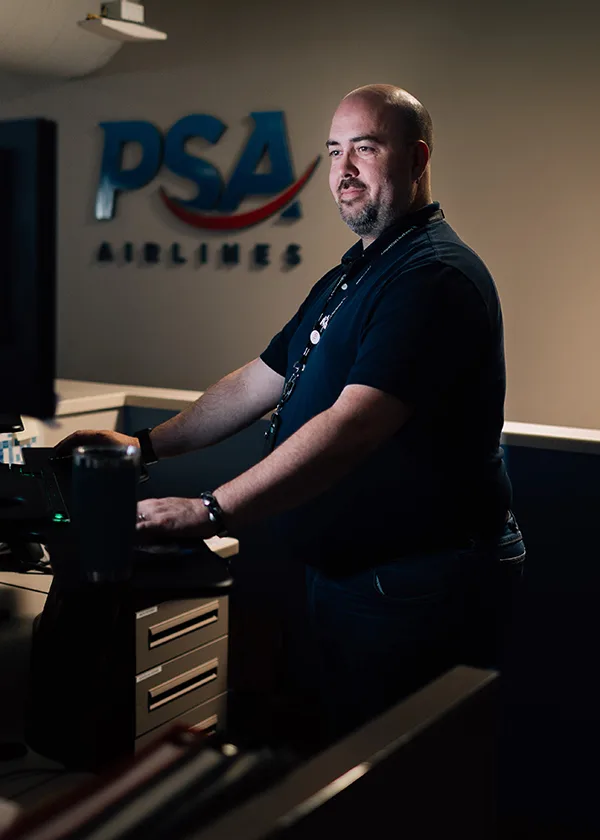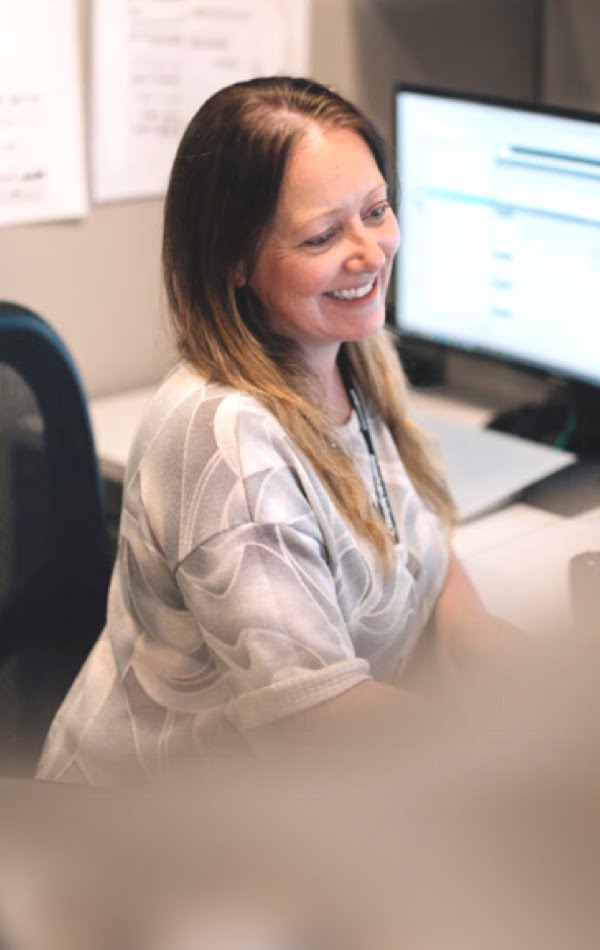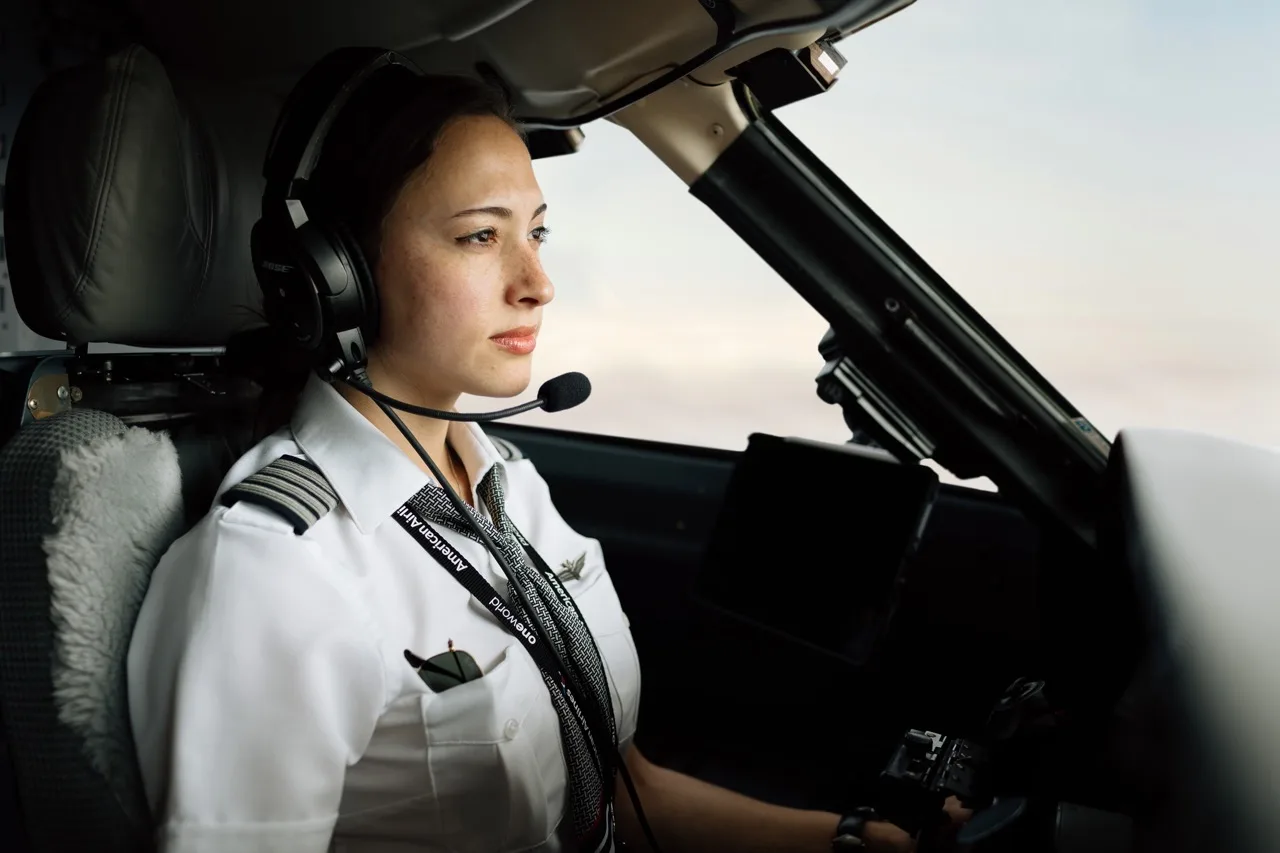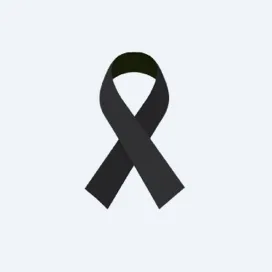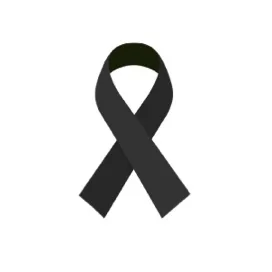Stay Current PSA Newsroom
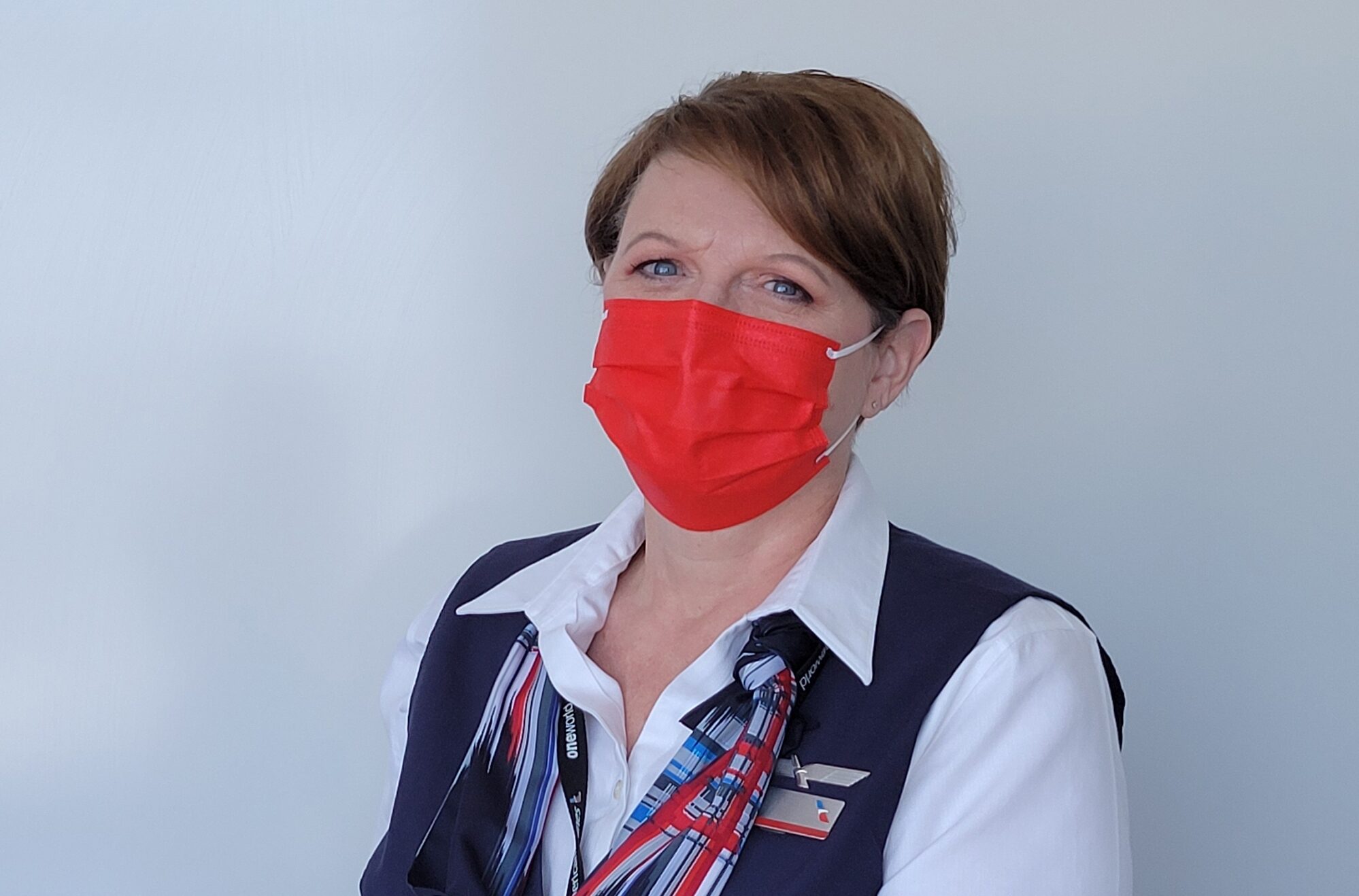
January 10, 2023
Volunteer Spotlight: Julie Mosteller Helps NASA with Rover Project
For National Volunteer Month, we are honoring team members who have given back to their communities and organizations. Check Flight Attendant Julie Mosteller is using her passion and knowledge for science, engineering and space to volunteer with the Mars Rover project and get a glimpse into the minds of children and their vision of our future in space. Read about Julie’s unique experience.
I am a self-proclaimed “space geek.” I follow several NASA and SpaceX-related social media pages. One day, I read an article about Future Engineers and their partnership with NASA. They had an upcoming project for the Mars Rover and they needed volunteers to help with it. I clicked on the link to sign up and discovered the project was looking for people who work in an engineering-related environment. While I am a Check Flight Attendant here at PSA, I also work in the automotive industry as a software application manager in the area of launch engineering. I applied and was accepted. I was subsequently set up with a link to a project dashboard for volunteers from across the country to access and participate.
My first project was taking part in the naming of the Mars Rover. I was so thrilled I would be able to see what students thought NASA’s Mars Rover should be named. Fast forward almost two years and we now know it is named Perseverance, or Percy for short. We were tasked with going through thousands of essays from children around the country with their suggestions on what to name the Mars Rover. There were hundreds of volunteers across all age/grade groups that judged well over 20,000 entries. I was assigned the 5th– through 8th-graders group. The winner was a young man from the group I judged! He chose Perseverance. Interestingly enough, the Mars Helicopter – Ingenuity (Ginny for short) – was also named out of the Name the Rover contest by an 11th grader from Alabama. I received a certificate for volunteering, and we were sent a thank you email from NASA.
I also recently finished the first round of the Artemis Moon Pod essays. NASA will be returning to the moon in 2024 and will be building a pod to leave on the moon for the future. Students were tasked with sharing who they would take, why they would take them and what would they take to leave behind for future explorers. Again, I judged 5th– through 8th-graders. The imagination of our future scientists and engineers is phenomenal. They really are the future of our space programs, whether though NASA or as a part of SpaceX and the Crew Dragon Program.
Virtual volunteering though Future Engineers allows me the flexibility of being available on a tight schedule and still contribute. I can log in either from home on my off days or even on my overnights when flying. It has been such a joy to be on these projects and I look forward to subsequent contests and projects through Future Engineers.
If you would like more information about Future Engineers and their mission on STEM and STEAM education, please visit https://www.futureengineers.org/



